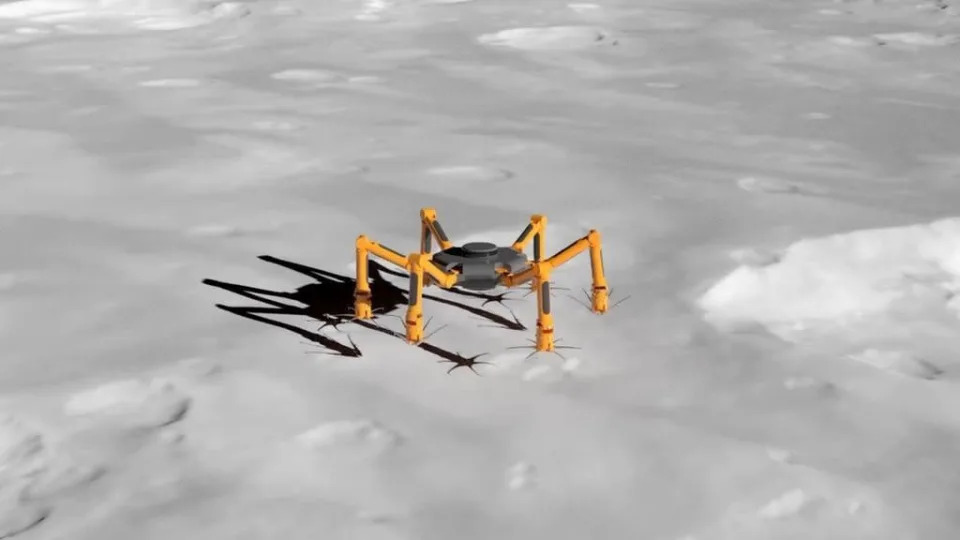

Asteroid mining: Helping to meet Earth's natural resource demands
source link: https://finance.yahoo.com/news/asteroid-mining-helping-meet-earths-000003955.html
Go to the source link to view the article. You can view the picture content, updated content and better typesetting reading experience. If the link is broken, please click the button below to view the snapshot at that time.
Asteroid mining: Helping to meet Earth's natural resource demands

"They essentially hold on to the side of the asteroid for dear life as it screams through the solar system."
Mitch Hunter-Scullion is describing a six-legged robot called Scar-e, the Space Capable Asteroid Robotic Explorer, which he aims to send to an asteroid to drill for precious metals such as iron, nickel and platinum.
As well as being increasingly essential for phones, laptops and cars, some metal-rich minerals like platinum will also be needed to help produce hydrogen as we transition to greener energy.
With only a finite supply of them on earth - people are increasingly looking to space to meet this increased demand.
That's where Scar-e comes in. Its powerful claw, designed in partnership with Tohoku University in Japan, should grip on to an asteroid in space to stop it from floating away.
It has been inspired by the way tarantulas hang on to walls.
"I am terrified of spiders", Mitch says, "so I thought that was quite appropriate."
Mitch is the founder of the Asteroid Mining Corporation (AMC). He admits pulling off such a feat is still a fair way off.
Not only would it involve landing robots on a rock, but also remotely building mining infrastructure, and then somehow sending the materials back to Earth.
But it's easy to see why he and others want to give it a try.
A new gold (or platinum) mining rush?
Asteroids are made of the same stuff as the rest of the rocky planets in our solar system - and that means they are also rich in some precious minerals we go to great lengths (and depths) to mine here on Earth.
Finding large deposits of platinum on an asteroid, for example, says Mitch, "would allow humanity to start innovating in a way we haven't done in quite a while".
Getting resources out of asteroids presents a different challenge to getting them from Earth, says Prof John Bridges, a University of Leicester scientist involved in the Hayabusa2 mission.
This is because these small, inert space rocks have not undergone the same geological processes as their massive planetary cousins.
Recommend
About Joyk
Aggregate valuable and interesting links.
Joyk means Joy of geeK